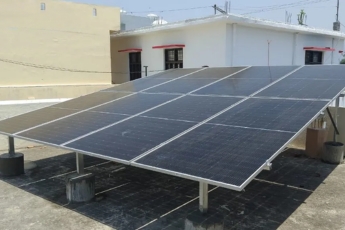Solar Panel Subsidy
Solar Panel Subsidy in Haldwani, Nainital, Uttarakhand
If you are planning to install rooftop solar panels, availing the Solar Panel Subsidy in Haldwani, Nainital, Uttarakhand can significantly reduce your overall installation cost. Solar energy is becoming increasingly popular in Uttarakhand due to rising electricity prices, abundant sunlight, and strong government support through subsidy programs.
We help homeowners, businesses, and institutions take full advantage of the government solar panel subsidy by offering end-to-end assistance—from eligibility checks to installation and documentation.
What Is Solar Panel Subsidy?
The solar panel subsidy is a government initiative aimed at encouraging the use of renewable energy. Under this scheme, eligible residential consumers can receive financial assistance on rooftop solar panel installations. This subsidy helps lower upfront costs while ensuring long-term savings on electricity bills.
Residents of Haldwani and Nainital can benefit greatly, as rooftop solar systems are well-suited to the region’s climate and sunlight conditions.
Benefits of Solar Panel Subsidy in Uttarakhand
Installing a subsidized solar power system offers multiple advantages:
- Reduced installation cost through government subsidy
- Lower monthly electricity bills
- Clean and eco-friendly energy generation
- Increased property value
- Protection against rising power tariffs
With the solar panel subsidy in Uttarakhand, households can recover their investment faster while contributing to a greener future.
Who Can Apply for Solar Panel Subsidy?
The solar subsidy is mainly available for:
- Residential homeowners
- Individual houses and housing societies
- Properties with suitable rooftop space
Our team assists customers in Haldwani, Nainital, and nearby areas with site evaluation, system sizing, and subsidy eligibility verification to ensure a smooth approval process.
Complete Solar Installation & Subsidy Support in Haldwani
We provide complete solar rooftop solutions, including:
- Free site inspection
- Customized solar system design
- High-quality solar panels and inverters
- Assistance with subsidy application and net metering
- Professional installation and after-sales support
Being locally active in Haldwani, Uttarakhand, we understand regional regulations, DISCOM processes, and documentation requirements, helping you avoid delays and rejections.
Why Choose Us for Solar Panel Subsidy Services?
- Local solar experts in Haldwani & Nainital
- Transparent subsidy guidance
- MNRE-compliant solar systems
- Competitive pricing with reliable support
- Trusted service and customer satisfaction
